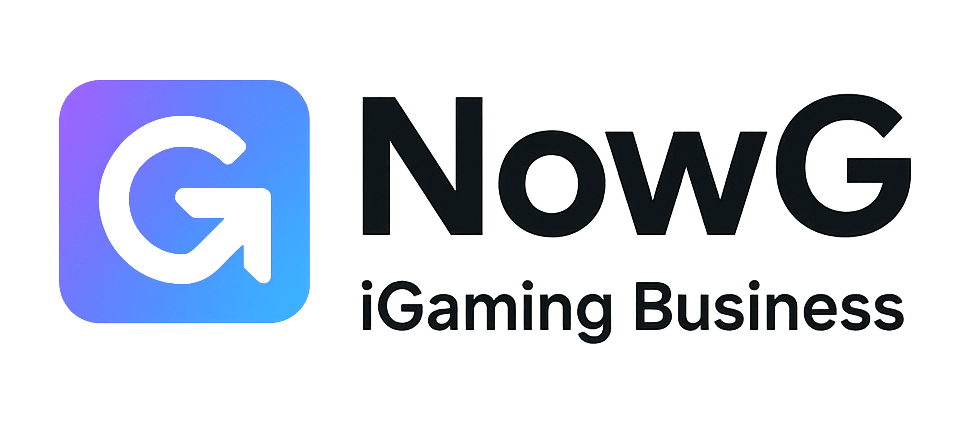Last Updated on November 16, 2025 by Caesar Fikson
2025 is heading to an end and the sportsbook stack in 2026 lives or dies on three things: AI-assisted trading, consent-first data, and omni-channel reliability.
Odds engines now learn in real time, markets are priced by models that retrain hourly, and the best platforms let you orchestrate retail kiosks, mobile, and web as one living organism. If your vendor can’t stream official data at sub-second latencies, run AI-driven risk, or expose clean APIs for your own data science, you’re carrying technical debt into a margin war you can’t win.
At NOWG, we’ve spent the past year auditing platforms across 60+ jurisdictions; below is the short list of twenty B2B sportsbook providers that are actually built for the era of AI—ready for bet builders, micro-markets, privacy-safe attribution, and managed trading that won’t crumble on championship nights.
Note on format: because this is a software list, each company name is hyperlinked to its official website. Feature notes call out AI, data, and compliance readiness where it matters.
1) Sportradar — ORAKO & Managed Trading Services (MTS)
If you want end-to-end risk plus official data firepower, Sportradar’s ORAKO platform and MTS suite are perennial shortlist material. MTS isn’t just “outsourced trading”; it’s a hub tying together live data, marketing, and pricing models like Alpha Odds, which are explicitly AI-driven to tailor margin and exposure per partner.
Operationally, you get pre-match/in-play across thousands of events, integrated streaming, and portfolio-level risk controls. The tech pages outline tailored MTS bundles and the ORAKO platform path if you want your own front end with their brains under the hood.
Why it’s 2026-ready: first-party official data + AI pricing + retailer-grade scalability. If your strategy leans into personalization and sharp-traffic tolerance, the toolset is already there. (Yes, we’ve stress-tested it on peak weekends.)
2) Genius Sports — Data, BetBuilder, and BetVision
Genius pairs official data rights with both managed trading and a modern bet-builder stack. Their sportsbook page flags live data and odds APIs and managed services built around a large global trading floor—useful if you want to augment (not replace) an in-house desk.
The differentiator lately is BetVision, which enables in-player betting inside the live video player (including NFL content where permitted). That second-screen collapse into one context is a conversion boost we’ve seen firsthand.
Why it’s 2026-ready: official rights + in-stream wagering UX + a mature API layer your developers won’t hate.
3) OpenBet
OpenBet is still the “nobody-panics-on-Super-Bowl” platform—battle-tested throughput, deep retail pedigree, and serious managed services. Their public materials emphasize operation at scale and the odds/trading product line; recent reference deals (e.g., the Veikkaus transformation in Finland with MTS support) underline that they’re comfortable in lottery and high-regulation environments.
Why it’s 2026-ready: uptime and throughput when handle spikes; an engineering culture built for national launches and complex compliance overlays.
4) Kambi
Kambi markets itself as the “trusted sportsbook partner,” but the key is under the hood: AI-driven odds, rich player props, and an award-winning bet builder you can deploy turnkey or as a component. For multi-brand groups that want a consistent front end and robust combinability logic, it’s a clean fit.
Why it’s 2026-ready: standardized risk frameworks plus machine-learned pricing; it’s the blend you need when optimizing margin across dozens of skins.
5) EveryMatrix — OddsMatrix Sportsbook
OddsMatrix has matured into a fully managed, API-first sportsbook with flexible front-end options, bet builder, and racing modules. The documentation highlights “one sportsbook, unlimited benefits,” which in practice means you can outsource events, odds, settlement, and still operate with precise back-office controls.
Strategically important: in 2024 EveryMatrix acquired FSB Technology to deepen its trading stack—evidence they’re doubling down on proprietary pricing and risk IP rather than only aggregating feeds.
Why it’s 2026-ready: modular APIs, aggressive investment in trading, and a track record of quick retail/online rollouts.
6) Altenar
Altenar positions its sportsbook as a high-performance module that integrates into any PAM or front end. Expect fast markets, bet builder, adjustable limits, and growing presence in regulated European and LatAm markets. Their service pages call out multi-jurisdiction deployments and flexible operating models (standalone or embedded).
Why it’s 2026-ready: a pragmatic build that plays well with others—handy when you’re modernizing piece by piece rather than ripping out the core.
7) BetConstruct — Sportsbook & SpringBuilder X
BetConstruct’s sportsbook touts 70K+ live and 140K+ pre-match events monthly with 120+ sports, multilingual support, and a site builder that reduces front-end dev time. Their stack spans virtuals and retail, so omni-channel operators can keep a single vendor relationship for content, risk, and terminal software.
Why it’s 2026-ready: breadth of markets and the ability to prototype new skins fast—useful when you’re cloning brands for new GEOs on tight deadlines.
8) BtoBet
BtoBet’s sportsbook has long appealed to operators in emerging markets, with an emphasis on configurable front ends and adaptable risk setups. While their public demo portals move around, the platform’s draw remains the same: flexible UI and pricing models, strong mobile emphasis, and a history of African and LatAm deployments—places where resilience matters more than glossy sales decks.
Why it’s 2026-ready: adaptability and regional know-how; if your roadmap includes frontier jurisdictions, you want scars and playbooks, not promises.
9) Sporting Solutions
Born from trading, not marketing. Sporting Solutions is laser-focused on pricing, risk, and platform services with 30+ years of quant pedigree. If you’re building in-house but need elite odds and limit management, their componentized services are worth a look.
Why it’s 2026-ready: quant-first, API-centric services that snap into custom architectures.
10) Playtech (Playtech Sports / BGT Sports)
Playtech’s sports arm blends retail SSBTs (self-service betting terminals) with online platform tech, which is crucial if your brand drives footfall from retail to mobile and back. They also house specialized units (e.g., Digital Sports Tech for player props) to push differentiated markets.
Why it’s 2026-ready: true omni-channel muscle—if retail remains a strategic wedge in your market, few vendors rival the hardware+software footprint.
11) Pronet Gaming
Pronet offers a sportsbook, betting exchange, and retail suite with a modern front end and a big catalog on the casino side for cross-sell. It’s particularly attractive for mid-market operators that want a balanced platform (sports + casino + retail) without year-long integration sprints. pronetgaming.com
Why it’s 2026-ready: full-stack pragmatism and speed to market, especially in multi-product deployments.
12) NuxGame
NuxGame’s sportsbook is tailored for fast launch and configurable operations (turnkey or API), with live match tracking, odds boosts, streaming integrations, and crypto-friendly iGaming stack options. For challenger brands, time-to-market often beats perfection—and NuxGame embraces that. NuxGame+1
Why it’s 2026-ready: launch velocity plus flexible integrations; ideal for testing new jurisdictions or niches without over-committing capital.
13) SOFTSWISS Sportsbook
Well known for crypto-casino infrastructure, SOFTSWISS has built a standalone sportsbook with strong gamification (jackpots, free bets, boosts) and integrations into their iGaming platform or third-party PAMs. Recent milestones point to accelerating adoption and product velocity.
Why it’s 2026-ready: crypto-savvy DNA, bonus tooling, and interoperability—handy when your audience skews web3.
14) Digitain
Digitain offers a heavyweight sportsbook spanning 100+ sports, 15K+ leagues, and 3K+ markets, with omnichannel delivery (online + retail) and a growing feature set like Tax Engine and community chat. If you want breadth plus localized knobs for fiscal compliance, it’s a practical option.
Why it’s 2026-ready: volume coverage, fiscal tooling, and retail support under one roof.
15) Amelco
Amelco is the banker-born platform—modular, API-exposed, and deeply configurable—with managed services for real-time risk. It’s popular among operators that insist on bespoke workflows, especially in the U.S. and high-compliance markets.
Why it’s 2026-ready: composable building blocks plus enterprise-grade risk—great for groups that want to own product without reinventing the core ledger.
16) IGT PlaySports
IGT’s PlaySports claims #1 B2B supplier status in North America by footprint, and the offering spans platform, retail hardware, PAM, and trading advisory. If retail is your entry wedge (tribal/casino properties), PlaySports is a de facto contender.
Why it’s 2026-ready: proven U.S. retail stack plus turnkey services; fewer vendors can deliver kiosks, platform, and compliance at that scale.
17) BetMakers Technology Group
BetMakers is the racing specialist—tote and fixed-odds racing technology, data, and integrity services across 30+ markets. If horse racing is a core P&L pillar, you need vendors that speak odds, pools, and integrity with equal fluency.
Why it’s 2026-ready: racing is back in vogue on mobile; specialist infrastructure delivers margin where generic books leak.
18) BETBY
A challenger with a sharp product cadence: ML & AI-assisted trading, customizable front end, and 24/7 esports via Betby.Games to smooth calendar gaps. For operators targeting younger demos, the esports/virtuals depth and a nimble roadmap stand out.
Why it’s 2026-ready: modern architecture, quick iteration, and engagement content that converts casino traffic to sports.
19) GAN Sports
GAN Sports grew out of the Coolbet tech DNA and now offers fully or partially managed trading, localized pricing, and property-level risk knobs—useful for U.S. multi-property groups seeking consistent UX with local levers. GAN.com
Why it’s 2026-ready: flexible trading overlays and deep U.S. market knowledge; a sensible pick for land-based groups going omni-channel.
20) OddsMatrix Data Services (EveryMatrix)
While we’ve already listed the full sportsbook, the data services deserve separate praise if you’re building your own front end. A high-availability odds & data API across 70+ sports and 100K+ live matches per month gives engineering teams the raw materials to craft unique UX without sacrificing coverage.
Why it’s 2026-ready: decoupled data feeds + tooling for custom payout/odds tweaks—perfect for product-driven operators.
Quick-scan matrix: who’s strong where (AI, bet builder, retail, data rights)
| Vendor | AI-assisted pricing | Bet Builder depth | Retail / Kiosk | Official data emphasis |
|---|---|---|---|---|
| Sportradar (ORAKO/MTS) | Yes (Alpha Odds) | Strong | Yes (terminals) | Very strong (official rights) |
| Genius Sports | Yes (Edge, trading) | Strong | Partner-led | Very strong (official rights + BetVision) |
| OpenBet | Risk engines, MTS | Strong | Very strong | Strong (multiple feeds) |
| Kambi | AI-driven odds | Award-winning | Partners | Strong |
| EveryMatrix (OddsMatrix) | Model-driven | Strong | Retail options | Aggregated + proprietary |
| Altenar | Model-driven | Strong | Integrates | Aggregated |
| BetConstruct | Model-driven | Strong | Strong | Aggregated + in-house |
| BtoBet | Model-driven | Strong | Options vary | Aggregated |
| Sporting Solutions | Quant-first | Medium | Partner-led | Mixed (focus on pricing) |
| Playtech | Model-driven | Strong | Very strong | Aggregated + partners |
| Pronet Gaming | Model-driven | Strong | Strong | Aggregated |
| NuxGame | Model-driven | Strong | Strong | Aggregated |
| SOFTSWISS | Model-driven | Strong | iGaming-first | Aggregated |
| Digitain | Model-driven | Strong | Strong | Aggregated + data unit |
| Amelco | Risk-ops focus | Strong | Partner-led | Mixed |
| IGT PlaySports | Model-driven | Strong | Retail leader (US) | Aggregated + official |
| BetMakers | Racing models | N/A (racing-led) | Retail partners | Racing official rights |
| BETBY | ML/AI in stack | Strong | Partner-led | Aggregated + esports |
| GAN Sports | Managed or hybrid | Strong | Strong (U.S. properties) | Mixed |
| OddsMatrix Data (feeds) | Model-driven | N/A (feeds) | N/A | Aggregated + proprietary |
What “AI-ready” really means for your 2026 P&L
Let’s be blunt: “We use AI” is marketing wallpaper unless you can quantify three things. First, model half-life—how quickly your vendor retrains pricing models as player behavior and injury news shift. Second, explainability—can your team trace a price move to a model signal when regulators ask? Third, operational knobs—limits by cohort, risk overlays by jurisdiction, and per-market margin targets you can orchestrate without calling support.
The leaders above expose those dials. You’ll see it in how Kambi documents AI-powered pricing, in Sportradar’s Alpha Odds language, and in Genius Sports’ trading + in-stream UX narrative. If you’re migrating in 2026, bake those requirements into your RFP: model retrain cadence, feature store design, and human-in-the-loop escalation for high-exposure events.
Architecture decisions that separate winners from rebuilders
- Component vs. turnkey. If you’re a multi-brand group with in-house engineers, consider a component stack—data feeds + bet builder + risk—on top of your own presentation layer. OddsMatrix Data, Sporting Solutions, and BetMakers (for racing) excel here.
- Omni-channel. If retail remains strategic (kiosks, bet shops, stadiums), shortlist providers with proven terminal estates—Playtech BGT, IGT PlaySports, OpenBet, Digitain. It’s not just hardware; it’s settlement, cashier, and queue-proof uptime.
- Latency discipline. In-play is a margin center when latency is tight. Ask vendors for end-to-end numbers (data capture → pricing → your front end). “API fast” isn’t enough if caches and CDNs add 400 ms.
Migration path without the heartburn
Week 0–2: lock non-negotiables (jurisdictional scope, retail footprint, feeds, and AI explainability).
Week 3–6: parallel-run pricing in “dark mode”—compare your current book to the candidate vendor’s odds and limit calls on live fixtures.
Week 7–10: migrate a single sport with the highest upside (often soccer or basketball), keep your own risk team in the loop, and A/B customer cohorts between old and new front ends.
Week 11–12: roll the remainder, then renegotiate PSP fees with new authorization profiles—better risk and fewer chargebacks give you leverage.
Pricing models and SLAs you should insist on
Ask for hybrid commercial terms: lower platform rev-share in exchange for volume tiers, plus committed capex from the vendor on compliance integrations (e.g., new state launch). Demand an SLA that measures not just uptime, but bet acceptance time, cash-out confirmation latency, and model refresh cadence. If a provider won’t contract on those, they’re not genuinely AI-ready—because AI without timeliness is theater.
Final thought
The 2026 sportsbook winner isn’t the flashiest UI. It’s the operator whose stack prices faster, explains itself to regulators, and adapts to player behavior as fluidly as your CRM. Shortlist ruthlessly, test scientifically, and let the numbers—not the demos—decide.
If you want a cold-eyed model of how these fee stacks and conversion deltas will hit EBITDA, plug your assumptions into NOWG’s Sportsbook Vendor ROI Calculator—we built it for exactly these decisions.




